What is Operational Independence, and Why is Trident Considered Operationally Independent in UK Service?
When discussing the UK’s nuclear deterrent Trident one phrase frequently comes up in debates and discussions: “operational independence”. But what exactly does this mean? And how can the UK nuclear deterrent be considered operationally independent if it heavily relies on American technology, infrastructure, and logistical support? Let us unpack these questions step by step.
A common challenge in discussions about the UK nuclear deterrent is that the layman’s view often struggles to separate structural dependence from operational independence. Many misunderstand the difference between the long-term, structural reliance on American technology, infrastructure, and logistics, and the short-term, immediate ability of the UK to independently launch its nuclear weapons. In essence, people frequently mix up long-term support with immediate control, making this distinction difficult to communicate clearly. Indeed, many professionals who regularly address this topic often feel close to giving up trying to explain the nuance.
However, it is critical to understand this difference clearly, as it shapes the reality and effectiveness of the UK’s nuclear strategy.
Understanding operational independence
At its core, operational independence means that a nation retains full control over the decision-making process concerning the use of its armed forces, including nuclear weapons, without needing permission, authorisation, or direct intervention from another country. It refers explicitly to having the practical capability and sovereign authority to launch or not launch these weapons independently.
Operational independence doesn’t mean isolation or total autonomy in developing and manufacturing every single component. Rather, it implies a guaranteed freedom of action, ensuring that decisions about deploying nuclear weapons rest exclusively in the hands of the UK government and Prime Minister. In simpler terms, operational independence means this: the UK alone decides if, when, and how to launch its nuclear deterrent. Period.
How is it operationally independent?
Trident is a submarine-based ballistic missile system. It comprises four Vanguard-class submarines, each capable of carrying up to sixteen Trident II D5 missiles, which are equipped with British-manufactured nuclear warheads. At any given time, at least one of these submarines is continuously at sea, submerged, undetectable, and ready to respond instantly if the UK were attacked. Critically, the decision-making and authorisation chain for launching nuclear weapons is entirely British. Only the Prime Minister has the authority and capability to authorise their use. There is no mechanism requiring permission from another country, such as the United States, before launch. Indeed, the missiles aboard these submarines can be launched without any external control or input.
Doesn’t Trident depend on American technology?
This brings us to a crucial nuance: while Trident is operationally independent, it does rely significantly on US support and cooperation. The UK leases the Trident II D5 missiles themselves from a common pool shared with the United States Navy. The missiles themselves are manufactured and maintained by Lockheed Martin in America, and they are periodically refurbished in the US. Additionally, the Vanguard-class submarines and their successor class, the Dreadnought-class, rely heavily on a series of sophisticated and specialised US-supplied components. Furthermore, the UK and the US regularly collaborate on research, development, logistics, and maintenance facilities.
In short, the UK nuclear deterrent is certainly deeply intertwined with American technology, components, and infrastructure.
Does this compromise independence?
Understandably, critics often highlight this dependency, arguing that such reliance might compromise Britain’s sovereignty or operational independence. However, this misses a crucial practical detail: the UK has been meticulous in ensuring that its strategic deterrent remains operationally independent in practice and by design. Here’s how:
1. While the UK and the US jointly use the Trident II D5 missile system, each country independently owns and controls the missiles it deploys. UK-owned missiles are loaded with UK-designed and manufactured nuclear warheads, and they’re launched by UK submarines, crewed exclusively by Royal Navy personnel.
2. The UK has complete control over the command-and-control system. The communications infrastructure used to issue launch orders is entirely sovereign. There are no “lock-out” or veto controls enabling the US, or any other ally, to deny the UK the ability to launch missiles if the Prime Minister authorises their use.
3. Once a Trident submarine leaves Faslane, it requires no immediate external technical or operational support to launch its missiles. Submarines can operate autonomously for months, staying submerged and undetectable, ready to act independently if needed.
The misconception of immediate dependence
If hypothetically, American support was withdrawn tomorrow, it would still take several years, perhaps a decade or more, for the UK Trident system to degrade to a point where operational independence was genuinely compromised. This extended timeline exists precisely because of extensive, well-planned stockpiles, spare components, well-established domestic maintenance capabilities, and trained personnel.
Moreover, any unilateral withdrawal of US support would be extraordinarily unlikely. The UK and US have maintained an exceptionally close and deeply integrated defence relationship since the 1958 Mutual Defence Agreement (renewed regularly), ensuring a long-term, shared strategic interest in continued cooperation.
To ensure its deterrent remains fully credible and independent, the UK continues to invest heavily in maintaining, upgrading, and modernising its nuclear force. This investment includes the upcoming replacement of Vanguard-class submarines with the new Dreadnought-class. This programme, already underway, further solidifies the UK’s ability to maintain its sovereign deterrent into the coming decades. Moreover, the UK continues developing its domestic industrial and technological capabilities, steadily enhancing independence by diversifying and reinforcing its own capabilities, even in areas traditionally reliant on American support.
Independent, not isolated
In essence, operational independence for Trident means that, despite relying on international cooperation and collaboration (especially with the US), the UK remains entirely autonomous regarding the decision-making and practical use of its nuclear deterrent. Trident isn’t a “rented” capability; it isn’t reliant on someone else’s permission. Instead, it’s fully and genuinely operationally independent: the UK alone decides when, where, and how it might employ this system. Crucially, even though Trident relies on technical and logistical support from America, such dependence is structured strategically, it’s resilient, long-term, and inherently secure, designed precisely to withstand fluctuations or political turbulence in international relations.
In theory, the UK could replicate the missile production, maintenance, and testing arrangements currently provided by the US, but practically and economically this would be extraordinarily costly, challenging, and time-consuming enough to not really be possible or practical. Although Britain undoubtedly has the scientific and technical expertise to eventually achieve such independence, the massive infrastructure investment, decades of skill-building, and political complexities involved make this option not a serious hypothetical.
Therefore, when you hear that Trident is operationally independent, remember this: it doesn’t mean absolute self-sufficiency or total isolation. Instead, it represents a deliberate, carefully designed system of sovereign control, maintained through responsible planning, international partnership, and long-term strategic foresight.


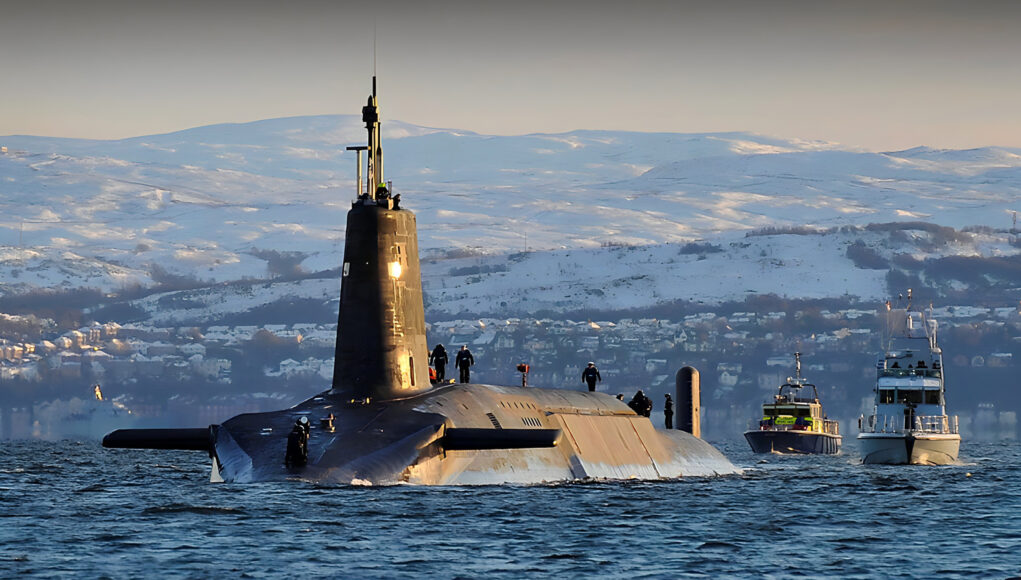
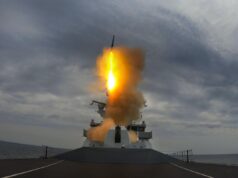

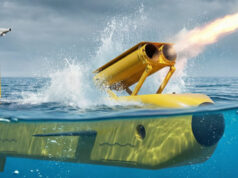
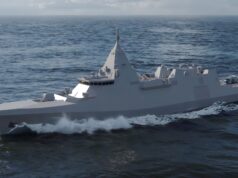




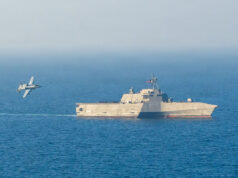
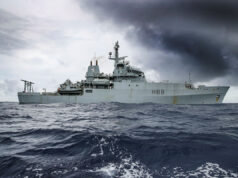

Well explained, but these really don’t strike me as difficult-to-understand nuances. What’s really puzzling is how the ‘laymen’ who genuinely struggle to understand such a straightforward premise are able to function in life generally.
Make extra profit every week… This is a great part-time job for everyone… Best part about it is that you can work from your home and earn from 100-2000 Dollars each week .….. Start today and have your first payment at the
end of the week….. 𝐖𝐰𝐰.𝐖𝐨𝐫𝐤𝐬𝐩𝐫𝐨𝐟𝐢𝐭𝟏.𝐨𝐧𝐥𝐢𝐧𝐞/
What has this crap got to do with the article? Pish off
Strange isn’t it?
But it seems to be that people decide what they want to be true, in this case that the UK is a vassal state of the US, and then find the social media posts or fake news that confirms their beliefs. Or not even that and just shout and scream about how they’re right.
This right here is the scary part because it isn’t unfathomable and still underlines a certain dependence:
If hypothetically, American support was withdrawn tomorrow, it would still take several years—perhaps a decade or more—for the UK’s Trident system to degrade to a point where operational independence was genuinely compromised
Pardon the pun but it wouldn’t be ‘rocket science ‘ to reverse engineer the missiles for our own use would it?
I’ve no clue, i think you have the know how to build your own, not even need to reverse engineer anything. You’re not Iran lol
We could easily build our own. We don’t because it’s expensive but if the US pulled support then we’d do it because we’d have no other choice.
It would probably take longer to develop a SLBM and refit the subs probably 10-20 years. We would probably have to buy the m51s, then go halves on the development the new missile in the 2040s. But there is an option.
We can’t fit M51 in the missile compartment, it’s too fat and too short.
Far better, as Jacko suggested, to “have a look” at a Trident before we sent them back to America and then use Roxel UK, BAE etc. to build our own missiles here.
They would probably be near-copies of Trident (inserting any new capability would be a catastrophically bad decision) but they would work and we would be self-sufficient.
They would fit in the new common missile compartment..they are specifically made bigger than trident as trident will be out of service before the common missile compartment will be.
I think the MOD released comment on this matter. The trident missiles can go circa 5 years without major work involving USA.
In those 5 years it’s not unfeasible for the UK to switch to the French ballistic missiles if US support for trident withdrawn
The key point is that any tantrums by tangerine toddler would have no operational advantage for his best friend, the killer of the crimlin, who can still expect many buckets of sunshine should he attempt to test his decaying stockpile of ICBMs.
Though Project 2025, the plan for fascist dictatorship in America, suggests the removal of term limits “you’ll never have to vote again”, it seems unlikely that the citizens and representatives would accept such a blatant coup. At about 80 years old, he’s unlikely to last another decade.
Trump does not need to stand again. They have JD Vance lined up – he does a fairly good Trump-Lite impression.
no worries then?
If the US did turn it off, it would be possible to go with the French M51 in the time they would have before trident.
The issue is trident is cheaper ( mass ) and more importantly trident can be used as a sub strategic weapon, which in theory gives the UK a sub strategic option.. M51 does not have this option. So the UK would need to consider this.
It’s also worth remembering trident is coming to the end of its life.. 2040s or 2050 so in the 2040s the UK would need to think does it go US or France
Sorry mate, but don’t think that going with the French M51 missile is a viable option on our boats, far to many complications to overcome.
The French missiles are slightly smaller but slightly wider than a Trident, so, whilst they might just fit in our launch tubes (width is the issue), they also weigh some 4-5 metric tons per missile less then a Trident. That’s a huge weight difference per unit, never mind for say 8-12 missiles. You are looking at approx some 40-50 tons less in weight, which creates a massive buoyancy issue for the SM. Whilst the SM has internal tanks to accommodate weight differences when firing missiles, they can’t deal with that amount of difference. It’s the actual tubes that compensate for the loss of weight when a missile is launched by replacing it with a corresponding amount of water. The onboard tanks are essentially only really used to keep the SM in its launch bracket so it can fire a salvo/s of missiles.
If they are shorter then 4-5,000kg of metallic ballast in the bottom the tube?
Hi mate,
that in itself creates a problem when we launch the missiles, as the gas that logs the missile up and out comes in at the bottom of the tube. The missiles also sits on a plate at the bottom of the tube. A bit of a major redesign would be required. Obviously it could be done, but very expensive along with all the other changes that would be required.
Not sure that that would necessarily be the best way forward. Unfortunately there would be no quick/easy solutions if this came to pass.
Hi Deep, I thought the idea of the common launch compartment was that you could essentially adapt and play with what you stuck in it. So it’s was not just a trident launch tub.. but something you could adapt and change around the load over the next 30-40 years ? Admittedly the V boats are what they are.
Not sure of the extent of change a common launch compartment could take? They are designed to take the vls Tomahawk module, but not sure if it extends to a foreign (M51) missile.
Hi yes that would be a good idea since the US are no longer reliable.The technical problems should be easily overcome if there’s a will.And l also think that France and GB should build 2 more SSBNs each to be on par with Russia.
Tony Benn MP explained many years ago, that we can fire our missiles whenever we want, but without the agreement of the US government, they would go straight up and straight down again. We cannot fire our missiles without the US targeting systems. So, based on that our nuclear deterrent is not independent. It is very much dependent on the US agreeing to let us fire them.
Aren’t the Tridents a combination of astro-guidance and inertial?
The whole point is that after an initial exchange of missiles by land-based deterrents (remember it was primarily designed for the US) the Trident sub can surface and, in a world in which the commander is unsure if there are even other humans still alive, fire the missiles at the pre-agreed targets.
A reliance on US satellite systems or some such would be counterproductive, even for the US subs.
That’s utter rubbish sorry.
They don’t use satellites etc for targeting. They use inertial navigation.
The missiles don’t t use any of this for targeting. The system is used against land targets whose coordinates are a known metric. The missiles use a astro inertial guidance system to reach their targets, so are not susceptible to any form of jamming. The only variable metric that SM launched ballistic missiles have, that land based ones don’t, is that the SM is moving so doesn’t have a fixed reference point when firing. This complicates targeting, but is overcome via other onboard systems. The end result.t is that a SM launched ballistic missile isn’t as accurate as a land based version, but we are splitting hairs over the accuracy of both systems, as either version is going to ruin ur day.
Tony Benn MP said a few things I could agree with and many things I did not..an that is clearly not something he would know anything about.
Indeed.
He might have known about some of the Polaris system but nothing about Trident.
I had a direct face to face with him, many moons ago, and he was adamant that he had cancelled the military version of Concorde. When I pressed him whether this was TSR2 or something else he couldn’t answer the question. He repeated the same claim on Radio 4 in about 2008?
Absolute cobblers.
Thats not true the Trident dpnt work based on US targeting info or anything like it. The targets are set by the Sub at the time, the missiles dont communicate with any US sats or bases other wise in the case of WW3 as a second strike weapon they would be totally useless if say the US had been destroyed.
The trident is so expensive because each missile has to be seperate and independant. It has to be able to target and navigate even if the UK and the US and all sats are destroyed.
Total rubbish, try reading up on how they work
No matter how many times it is explained people just don’t get it…
Bollocks.
Interestingly the Germans are now coming out and saying that there may be a kill switch on the F35 and that there may therefore be a contract ending issue if it’s confirmed.. this probably means German will end up looking for a nuclear deterrent… Poland have just said they are probably looking for one.. so there may be 4 European nuclear powered in the middle of the decade.
There is no “kill switch” as such, but the F-35s require US technicians to keep them operational. So, if the US decided that they did not want Germany flying the aircraft, then they would be grounded without the software updates that are required every month or so. Essentially, the F-35 – and all US weapon systems – are leased, not bought.
It’s a very live issue the Germans are taking seriously and pushing hard on:
“Joachim Schranzhofer, head of communications at the German defence company Hensoldt, stated in an interview with Bild that the idea of an F-35 kill switch is “more than just a rumour.” If true, such a capability would grant the US an unprecedented level of control over its allies’ military capabilities, potentially jeopardising European security autonomy.”
“Wolfgang Ischinger, former chairman of the Munich Security Conference, warned that Trump’s stance on Ukraine could have broader implications for Germany’s defence relationship with the US. “If we should fear that the US would treat the future German F-35 jets the same way they do in Ukraine now, then the issue of contract cancellation may be considered,” he told Bild.”
They are starting to talk for real. The stuff of Mrs Trump, Vance and Musk was just a catastrophy of epic proportion. The destruction of US foreign influence in less than a month is something we can have examples of in history book, where absolute monarch with limited intelligence destroy their own Kingdom. It has been rare in modern history. The tone of US élection has had a role in this.
Now, facts remains. Nobody can accept to be treated like Ukraine has been. So all F35 sale in Europe are in jeopardy. It is about time.
The issue is that the ‘Kill Switch’ could just be ALIS being turned off.
So no service data or spares or just interruptions in the spares pipelines.
I’d be surprised if there was a total kill switch as it would be a gift for hackers. Rather embarrassing if it was turned [off] against you?
There has to be a baseline assumption that all systems get hacked, to some degree, at some point in time.
So creating an extreme vulnerability would be insane.
It’s time for europeans to buy more Rafales and Typhoons.
As I’ve said down thread it is very unlikely to be a real full kill switch.
But the issue of a Tangerine Toddler Tantrum needs to be taken ultra seriously with respect to spares and service.
We really should have continued with BAE Replica instead of going in on F-35; we could have had our own, home-grown stealth strike aircraft that would have rivalled the F-35.
Probably would have gotten a decent amount of export sales, too – especially now that Trump has pissed everyone off. Any European country looking at F-35 would have had a British-made alternative.
I guess a relatively benign kill switch, preventing take off of an f35 is a vast improvement over the kill pilot whilst in flight, a sad feature of the f104 starfighter.
Especially when the far superior British TSR2 was canned because of, amongst other things, large bribes to German officials to choose the American F104 Widowmaker over other planes in the running
What’s a “relatively benign kill switch”? Especially given Chump’s random walk behaviour and the poisonous actors behind him/
Is it like a relatively benign bullet in the head?
The Germans are buying F-35A to fulfill their nuclear participation role. The bombs themselves are American, so I fail to see the point.
A sovereign nuclear deterrent in a country without nuclear plants isn’t possible. It would also be against the NPT.
It’s also important to understand that Merz is being seen as a liar right now. He won’t be able to solve the immigration problem. The next election will be won by the AfD. You really don’t want a nuclear armed Germany.
The importance of Ukraine to German strategic planning is one best described as “cheap mercenaries”. They will do everything to keep the war going.
hi
I’m making over $20k a month working part time. i kept hearing other people tell me how much money they can make online so i decided to look into it. well, it was all true and has totally changed my life. this is
what i do…..
The UK needs the capability it had with Polaris. To quote from the book “The impact of Polaris” the Polaris tasks at Coulport a) receipt of missiles, guidance, spares & support equipment from the US & warheads from UK manufacture; assembly & test, loading onto submarines
b)receipt of missiles from submarines for storage, repair, modification, periodic overhaul & surveillance testing.
Excellent, well explained article. Should become a standard reference article in future. Probably should be republished periodically, given the inherintly short-term nature of social media. Bravo Zulu.
… inherently…🙄
I did have to laugh when the final sentence assuring us about Britain having complete independent operational control of its nuclear deterrent ended with the decidedly American term ‘Period’. Should we be worried? If you are under house arrest with Big Balls ominously looking over your shoulder checking every move George, then be assured we get your message.
Whilst accepting all that the article contains, there does seem to be a contradiction in the language used, to wit: “The UK leases the Trident II D5 missiles themselves from a common pool shared with the United States Navy.” yet later, “While the UK and the US jointly use the Trident II D5 missile system, each country independently owns and controls the missiles it deploys.” The common meanings of the verbs to lease and to own would seem to render those statements contradictory. Can Mr. Allison provide an explanation that removes the seeming contradiction?
He may mean the MIRVs that are deployed from the missiles . These are “ owned “ . It’s probably the double use of the word missiles when maybe warheads would have been better .
If the American defence policy continues into the future even after Trump has gone, then it might be wise to build a European designed and manufactured nuclear weapon capability. German is already asking about UK/French nuclear protection. (Guardian report 9/3/25).
I could see Poland being interested in obtaining instant sunshine bombs. So maybe a submarine based UK/French SSBN design to replace the Dreadnought class in 25-30yrs with UK/French designed missiles cable of launch from SSBNs or land based silos for Poland.
For Poland, access to a safe sea is impossible. The Baltique sea is too shallow. The height of the submarine itself would enable détection and I don’t see how Poland could for sure communicate with a submarine beyond the Skagerak straight, nor cross it undetected.
So ok, a ground variant… it can attract ennemy missile. Which is nice for partners. Or they can shoot First. With hypersonic, the only safe option to ensure deterence, provided Russian missiles are shot from Kaliningrad is to shoot with how long a pre warning? 2 minutes?
So we are going to have a guy ready to fire nukes from Poland in less than 2 minutes and start a nuclear war in the next 50 years…
I mean… it make sense, but does not give any room to dismiss a mis interpretation or correct an error.
That would be why you would go for air launched over ground launched. Fighter can be scrambled or even be in the air 24/7 in time of higher tension.
It would be air launched misssiles for Germany, Italy and Poland. Sub launched for UK and France (backed up by air launched) and if the EU was ambitious I would see if Spain could be pushed into being home for a European IRBM, ICBM.
I would not be surprised if Poland & others go for the “white” South African option. Towards the end of their rule, they had 6 low yield gun type nuclear bombs to be carried by their Buccaneer aircraft.
I don’t think there will be any joint development of missiles or submarines between France and the United Kingdom in the future. This would involve sharing technology and production, which would run counter to the principle of total independence of our nuclear deterrent. It would be very good if we cooperated more, but I doubt it would go as far as developing joint technology.
I never thought I’d say this, but the way things have gone recently, it’s not inconceivable that the USA could be an adversary of Europe in the not so distant future. They seem willing to push around and bully to get what they want, with seemingly no end in sight. Any reliance on the USA for our nuclear deterrence is therefore intolerable. Simply “waiting for the far right to go away” is not a strategy.
It will be difficult and expensive, but we need to lay the foundations for a replacement with serious contingency planning for a scenario where support is pulled tomorrow.
I’m sorry but people can believe what they want but without hardware level access, drawings, and software code the British government can say/believe what it wants but it’s very feasible that the Americans have something in those missiles that would prevent it’s operation.
The doubt America could be trusted on Trident has been long held and the latest administration makes those questions even more pertinent.
You have to respect what the French have done. They have true independence with their nuclear deterrence. We might have it technically, but to all practical and political purposes, we don’t. In the next three years we are going to be in for many more surprises and I suspect that the US may not wish to continue giving us such a ‘good deal’ with nukes. I suspect HMG will downplay it and pretend that nothing has changed.
A good article – it is useful to state why we have independence with nuclear release. However, it might be good for the UK develop its own launch vehicle to replace the Trident missile. France has its own missile so should we. Also we should look into arming Storm Shadow with nukes.
Yeah the Dreadnought class SSBN are designed with whatever is going to replace Trident in mind but what that will be is not going to be known for a very long time
For decades various British governments have refused to understand the USA is out to shaft is. Now with it’s treatment of Ukraine, it’s handing of Ukraine trusses up for fucking to Trumps puppet master Putin it should’ve clear that the UK should’ve totally independent of the USA in EVERYTHING related to our security, nukes, ships, planes, ammunition, intelligence, communications, computers, absolutely everything. We should do it NOW and not wait to be screwed over. We should drop all the green bullshit, stop ALL USA trade, stop all the overseas aid, stop all the diversity bullying and put all our money into defence equipment and training people, right now
The fact is, no one outside the US knows for *certain* that they would work when fired in anger and in opposition to the current occupant of the White House. To say otherwise is to pretend to know things we don’t.
For what it’s worth, I would be looking to build a sovereign deterrent within Europe as quickly as possible as the US has proven itself to be unreliable and potentially actively hostile in the future. We could say that we would be hit with the same problem in relying on the Europeans but I think it’s fair to assume that the Europeans are going to much more aligned with our interests than a reality TV star 3000 miles away across an ocean
Former MI6 officer Alastair Crooke says the UK nuclear deterrent is “joint key” and therefore not independent. Who should we believe?
Here’s his comment (at about 18 minutes), made earlier today:
https://www.youtube.com/watch?v=F6fW0GkkrJI
I’m very surprised that the article says we lease the missiles from the US. My understanding is that we bought outright a particular quantity but that when one of these goes into the shared maintenance pool we get a different l, random, one back that may or may not have been in one of those originally purchased. With test firings the quantity obviously reduces – there was a claim in the last few days that it was down to 50 now.
The article at one point said leased and in another point said owned. This is a key point to clarify. If leased we are at higher risk of the US changing policy and asking for them back (I assume), if owned then we can keep them going until the get to a point where they break beyond our ability to repair. As dreadnaughts are still in mid build seeking an alternative capabilty would be prudent. Trident will near be the missile in use over the full dreadnaught lifespan so alternatives will be needed anyhow.
Fun facts:
1) The Royal Navy refused to have a weapon that may not fire when they pull the trigger. So no PAL (Permissive Action Link), there’s no “Nuclear Football”, no codes, nothing.
There’s just a trigger. Click!
2) Currently the UK has promised to reduce its stockpile to 260 active warheads.
Further to this there’s lots of dismantled warheads and 120 metric tons of weapons grade plutonium and 20 tons of highly enriched uranium.
Although at least announcement the plan was to destroy all of this stockpile, I suspect current events will see us keeping our ludicrously big pile of H-Boom.
At the least I’m sure we can find some willing customers wanting to buy some.
Maybe some confusion comes from the big hop-ha in the 70/80s when the Government tried hard to use official secrets act to prevent publication of stories that tte UK needed the USA to switch on the guidance systems for UK nuclear deterrent?
Quote: “Period.”
Um. Oh dear.